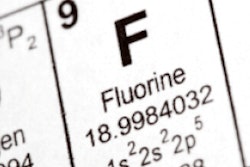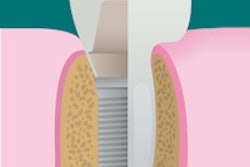Colldent's new Phocal fluoride disks provide dentists with new ammunition in the battle against incipient interproximal caries.
The relatively high incidence of primary and secondary interproximal caries can be attributed to the failure of current home care and professional preventive agents from reaching these surfaces adequately, the company noted in a press release. As a result, approximately 18% of interproximal surfaces develop caries, requiring the removal of much healthy tooth tissue for access in order to place restorations. Furthermore, the interproximal margins at restoration-tooth interfaces often develop secondary caries after eight to 12 years, requiring restoration replacement.
Phocal presents a new treatment option. The thin, round disks can be inserted between the teeth to deliver a concentrated dose of fluoride to previously inaccessible areas.
The disks are available in two forms:
- Phocal Apf (acidulated phosphate fluoride) disks contain 0.103 mg of sodium fluoride and .009 mg of hydrogen fluoride, induce an optimized low pH environment that cleans and etches tooth surfaces, and facilitate deep fluoride penetration while stimulating remineralization.
- Phocal pHn (nonacidic sodium fluoride) disks are appropriate for patients with ceramic crowns or tooth-colored restorations. They contain 0.122 mg sodium fluoride, are less acidic and will not etch into ceramic crowns or restorations, and induce fluoridation and remineralization.
The Phocal disks are available through various dealers in the U.S.



















